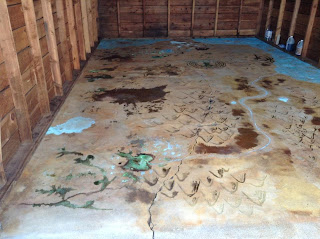What are you working on now?
Right now, I'm back writing poems for my verse novel, The Dangerous Kind. After writing a critical thesis last year (for my Hamline MFA) on verse novels, I started to see all the different ways you can write a verse novel, and how adventurous you can be, thanks to reading writers such as Helen Frost and Allan Wolf. I'm being quite experimental - for me - although others might not think so. It's challenging and great fun when I get a poem to work. I'm also writing short personal essays for a blog I haven't opened up for reading yet.
How does it differ from other works in the genre?
I'm not sure the verse novel differs a lot from what Frost does, but it's certainly different from a lot of other verse novels I've read. I dislike vns that are basically truncated prose, and so this almost goes to the other extreme, with form poems and lots of different voices.
The voices are very important to me, as is finding ways to show them through language and line breaks.
Why do you write what you do?
Once I get an idea that really excites me, I can't let it go. Sometimes I think it would be so nice to write the same kind of book all the time and know publishers and readers will be avidly waiting for the next one, but I just can't do it. I have to go where the idea leads me, whether it's into a historical novel, a verse novel or a picture book.
It's that excitement that keeps me going, too. A novel can take a really long time to write, and then there are the rewrites. If I'm not still committed to the story and characters after all that, the revisions are painful and not productive.
What's the hardest part about writing?
For me, it's the revisions. I love the first draft, but I've had to learn to love revision, too, and see what it can add to a book. Mostly, it's about deepening the characters and plot. I have to remind myself that the first draft was just for me, and now I have to work out what the reader wants, and what is still in my head and not yet on the page.
This is where a good reader or workshop group is so valuable (thanks, Big Fish!). When you have a group who will read chapter after chapter for you, and make good comments, it really helps you to see what is missing. I tend to be a bare bones writer, and then have to fill in the "meat" on second and third drafts, and also learn to cut the stuff the reader doesn't need.
What are you working on now?
What are you working on now?
What are you working on now?









